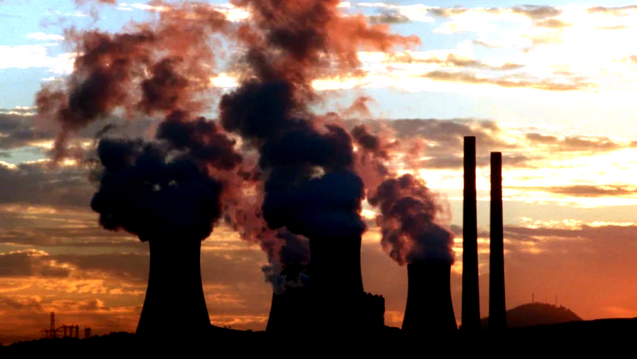 |
Investors are starting to demand businesses take action on climate change.
(Shutterstock)
|
Companies committed to tackle climate change are addressing their greenhouse gas emissions (GHGs) via science-based targets. These voluntary goals are compatible with the global push towards a low-carbon economy that aims to keep the global temperature increase to less than 2℃.
One program that is gaining traction globally is the Science Based Target Initiative (SBTI), a collaboration between CDP, a not-for-profit charity, the UN Global Compact, the World Resources Institute and the World Wildlife Fund. This program creates a global community where companies can set targets that align with the Paris Agreement.
Joining a global community like SBTI not only provides a formal framework for measurement and tracking goals, it also signals a company’s commitment to climate change action. As of early 2019, 525 companies have signed on, including 169 with approved targets.
Big companies at the forefront
IKEA, Unilever, Tesco, General Mills, L’Oreal, Walmart and McDonald’s are among the large multinational corporations that have signed on to the SBTI.
IKEA Group, for example, has committed to an 80 per cent reduction in GHG emissions in stores and other operations and a 50 per cent reduction in emissions from travel and customer deliveries by 2030, compared to 2016 levels. It will also cut emissions in its value chain by at least 15 per cent, resulting in a 70 per cent reduction in the climate footprint of an average IKEA product.
Large companies can make change within their own operations and along the supply chain. McDonald’s plans to reduce its emissions intensity across its supply chain by 31 per cent by 2030 (baseline 2015) by targeting energy use and packaging waste in restaurants, and streamlining its beef production, which make up more 60 per cent of emissions.
Similarly, General Mills, the packaged food company (Cheerios, Yoplait and Green Giant) set a science-based target to cut its GHG emissions by 28 per cent by 2025 (from a 2010 baseline) across its entire value chain, from farm to table to landfill. It plans to do this by getting its farmers to adopt sustainable practices that reduce emissions and protect at risk water sources, for example.
Companies participate in global sustainability initiatives and set external goals because of their sustainability mindset, strategic gains, external competitive or reputational risk pressures and recognition of an inexorable shift to a low-carbon economy.
While participation in the SBTI is voluntary, the results are reported publicly. Even though there are few tangible sanctions for non-performance, the absence of achievement or reporting can harm a company’s reputation.
Canadian National Railway has promised to reduce its emissions intensity by 29 per cent by 2030, based on a 2015 baseline.
There are several reasons for the low participation in SBTI among Canadian companies. The Chartered Professional Accountants of Canada argues that more than 99 per cent of businesses in Canada are small businesses, with fewer resources, employees and pressures.
Key benefits
SBTI and the participating companies, however, see a number of benefits from setting targets. They also provide companies with long-term goals that will be resistant to changes in management and shifts in business priorities.
A major European electric company, EDP, found strategic benefits in laying plans to decarbonize — it builds reputation, improves visibility and helps it benefit from innovation, and had a favourable response from investors, employees and customers.
Walmart says it is part of their sustainability journey to encourage others to look at emissions as a form of waste with financial value or inefficiency in the value chain. In 2017, it launched Project Gigaton to encourage suppliers to eliminate one billion tonnes of GHG emissions from their operations and supply chains by 2030 by targeting one of six pillars: energy, waste, packaging, agriculture, forests or product use. Suppliers achieving goals and communicating performance publicly are recognized as “Giga-Gurus.”
Unilever looks at science-based targets to boost its competitive advantage in the shift towards a low-carbon economy and to hedge against regulator pressures and the costs related to carbon pricing. In 2017, Unilever reduced energy-related emissions by 47 per cent per tonne of production from 2008 levels, and shifted towards renewable energy in manufacturing. The company also identified a nine per cent increase in GHG emissions from its consumer products since 2010, largely due to the consumers’ hot showers when using their products.
The food and beverage sector — considered a significant driver of global climate change and the one with the most at risk from climate change — has been an early adopter of science-based targets. Fifty-nine businesses, including Ben & Jerry’s and PepsiCo, have either set targets or are at the commitment stage.
Other global initiatives to encourage businesses to develop responsible practices and meet climate goals are also on the rise. For example, Principles for Responsible Investment has attracted 2,232 investors who believe in an “economically efficient, sustainable global financial system” and who agree to incorporate environmental, sustainability and governance issues into their investment practice.
Eighty-seven per cent of Canadians believe businesses must make a stronger commitment to climate change action. Youth, in particular, are demanding more commitment, and future consumers such as Greta Thunberg are taking to the world stage and inspiring other students to raise their voices.
It is unlikely that one company or one nation will make a significant impact on reducing emission levels, however, climate change can have significant impact on business.
Links
- How divesting of fossil fuels could help save the planet
- Failure to curb climate change a top risk: Davos survey
- Science Based Targets Initiative
- Science Based Targets
- Companies taking science-based climate action
- Principles for Responsible Investment
- 'The beginning of great change': Greta Thunberg hails school climate strikes




